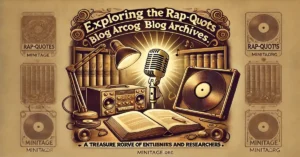The entertainment world has long been a fertile ground for gossip and sensational stories, and few incidents illustrate this better than the “Justin Timberlake toxicology” controversy. Although rooted more in speculation than fact, the rumors surrounding this incident have drawn attention to the complex interplay of media, celebrity culture, and public perception. In this article, we’ll delve into the origins of the controversy, its impact on Justin Timberlake’s career, and the broader lessons it offers about the nature of celebrity in the digital age.
Origins of the Justin Timberlake Toxicology Rumors
The “Justin Timberlake toxicology” narrative began circulating as a low-key rumor in celebrity gossip circles, eventually gaining traction in tabloid media. Allegations surfaced suggesting that Timberlake had engaged in questionable behavior, allegedly linked to substance use, during his relationship with pop icon Britney Spears. Notably, there was no tangible evidence, legal action, or formal accusations to substantiate the claims. Despite the lack of a credible Justin Timberlake toxicology report or any confirmation, the story was quickly amplified by a media landscape hungry for scandal.
The rumors aligned awkwardly with Timberlake’s carefully curated public image as a wholesome, boy-next-door figure—a persona he had cultivated since his time as a member of NSYNC. The dissonance between this narrative and the unverified allegations made the story particularly sensational, drawing in readers and generating widespread buzz.
Media Amplification and Public Reaction
As rumors spread, media outlets began to fuel speculation about the details. Headlines featuring phrases like “Justin Timberlake news toxicology” and “Justin Timberlake toxicology report” flooded platforms, sparking public interest. Despite the lack of any supporting evidence, the narrative painted Timberlake in a negative light, tarnishing his otherwise spotless reputation.
Fans and critics were divided in their responses. Loyal supporters of Timberlake dismissed the allegations as baseless rumors intended to tarnish his image. Others, swayed by the persistence of the story, questioned the authenticity of his public persona. Social media played a pivotal role in the spread of the controversy, with hashtags like #JustinTimberlakeToxicology trending as people weighed in with their opinions.
Timberlake’s Response to the Controversy
Justin Timberlake and his team acted swiftly to address the swirling allegations. In official statements, his publicists labeled the rumors as unfounded, emphasizing that there was no Justin Timberlake toxicology report or legal basis for the claims. They argued that the controversy was a deliberate attempt to harm Timberlake’s reputation during a crucial phase of his career.
Timberlake himself denied any wrongdoing, reiterating his commitment to a healthy lifestyle and discrediting the allegations as baseless. His measured response underscored the challenges celebrities face in managing their image amidst a relentless cycle of rumors and speculation. Despite his denials, the controversy left a mark, raising questions about how such stories influence public perception.
Impact on Justin Timberlake’s Career and Public Image
The “Justin Timberlake toxicology” story inevitably affected his public image, at least temporarily. Timberlake, known for his clean-cut persona, was forced to navigate a narrative that directly contradicted the values he projected. While some fans stood by him, others found their perception of him altered, however subtly.
Nonetheless, Timberlake’s career proved resilient. He continued to release chart-topping albums and deliver standout performances, cementing his position as one of the most versatile and successful artists of his generation. Over time, the controversy faded from public consciousness, eclipsed by his musical accomplishments and professional endeavors. However, it remains a case study in how media narratives can disrupt even the most carefully managed public images.
Broader Implications for Celebrity Culture
The “Justin Timberlake toxicology” controversy highlights a troubling aspect of modern celebrity culture—the propensity to sensationalize and fabricate stories to generate headlines. In an era where clicks and views often outweigh accuracy, media outlets may prioritize scandal over truth, perpetuating narratives that can cause lasting harm to public figures.
For Timberlake, the controversy served as a reminder of the fragility of public perception. Even a baseless rumor can snowball into a significant issue when amplified by media speculation and public discourse. This dynamic underscores the importance of critical media literacy among audiences, who must discern fact from fiction in an increasingly noisy information environment.
Lessons from the Justin Timberlake Toxicology Rumors
The “Justin Timberlake toxicology” story offers valuable insights for both celebrities and their audiences:
1. For Celebrities:
- Transparency and Authenticity: Public figures must strive for honesty and consistency in their public and private lives. Addressing rumors promptly and transparently can help mitigate their impact.
- Proactive Image Management: Celebrities must recognize the risks of media scrutiny and take proactive steps to manage their reputations.
- Building Resilience: Developing thick skin and focusing on long-term goals can help public figures weather temporary storms.
2. For the Public:
- Critical Media Consumption: Audiences must approach celebrity gossip with skepticism, prioritizing verified information over sensational headlines.
- Empathy for Public Figures: Recognizing that celebrities are human beings can foster a more compassionate and responsible media culture.
- Avoiding Rumor-Mongering: By refusing to share or engage with unverified stories, the public can reduce the spread of harmful narratives.
Conclusion
The “Justin Timberlake toxicology” controversy, while largely rooted in rumor, serves as a revealing case study in the dynamics of modern celebrity culture. It illustrates the challenges of maintaining a public image in a world where speculation can quickly spiral into widely accepted “truth.” For Timberlake, the episode was a temporary blip in an otherwise stellar career. For the media and the public, it offers a cautionary tale about the dangers of sensationalism and the importance of prioritizing accuracy over scandal.
In an age of ubiquitous media consumption, both celebrities and audiences have a role to play in fostering a culture of responsibility and empathy. By focusing on truth, transparency, and critical thinking, we can help create a media landscape that values integrity over sensationalism.
FAQs
1. What is the “Justin Timberlake toxicology” controversy?
The “Justin Timberlake toxicology” controversy refers to unverified rumors suggesting that Timberlake was involved with substances during his relationship with Britney Spears. These claims were widely circulated despite a lack of evidence or a formal Justin Timberlake toxicology report.
2. Was there any evidence supporting the toxicology rumors?
No, there was no credible evidence or official reports to substantiate the toxicology allegations against Justin Timberlake. The rumors were purely speculative and unfounded.
3. How did Justin Timberlake respond to the rumors?
Timberlake and his team denied the allegations, labeling them as baseless and harmful. They emphasized his commitment to a healthy lifestyle and dismissed the rumors as an attempt to tarnish his reputation.
4. Did the toxicology controversy affect Timberlake’s career?
While the controversy temporarily impacted his public image, it did not derail Timberlake’s career. He continued to achieve significant success in music and entertainment, eventually eclipsing the rumors.
5. What lessons does the “Justin Timberlake toxicology” controversy offer?
The controversy underscores the importance of critical media consumption, transparency, and empathy in celebrity culture. It highlights the need to prioritize truth over sensationalism in both reporting and public discourse.
6. Why did the toxicology rumors gain so much attention?
The rumors gained attention due to their contrast with Timberlake’s wholesome public persona, as well as the media’s tendency to amplify scandalous stories for clicks and engagement. Social media further fueled the narrative’s spread.








